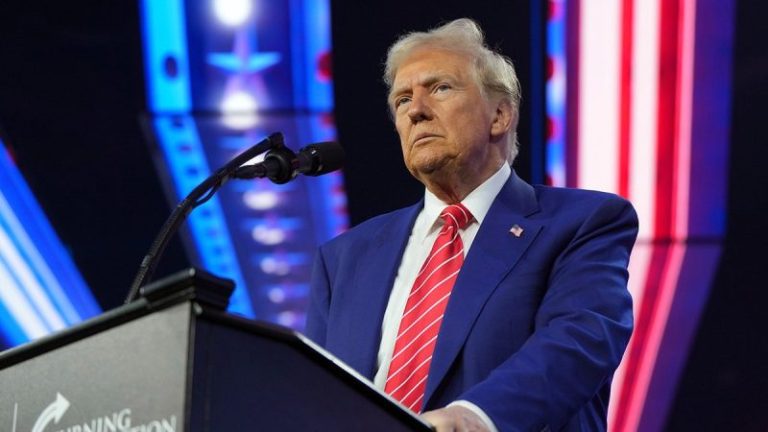Panama’s president has responded to President-elect Trump’s idea that his new administration could try to regain control of the Panama Canal.
After Trump said Sunday that the United States ‘foolishly gave it away’ and is now ‘being ripped off’ at the waterway, Panama’s conservative President José Raúl Mulino released a video declaring that ‘every square meter of the canal belongs to Panama and will continue to belong’ to his country.
Without mentioning Trump by name, Mulino addressed Trump’s complaints over rising fees for ships crossing the canal, saying they are set by experts who take into account operational costs, and supply and demand factors.
‘The tariffs are not set on a whim,’ Mulino said. He noted that Panama has expanded the canal over the years to increase ship traffic ‘on its own initiative,’ and added that shipping fee increases help pay for improvements.
‘Panamanians may have different views on many issues,’ Mulino said. ‘But when it comes to our canal, and our sovereignty, we will all unite under our Panamanian flag.’
Trump then took to his social media site to offer in response, ‘We’ll see about that!’ He also posted a picture of a U.S. flag planted in the canal zone under the phrase, ‘Welcome to the United States Canal!’
Trump had previously addressed the canal in a Saturday Truth Social post, where he complained at length about the fees levied on U.S. ships going through the Big Ditch. The Panama Canal’s tolls can range from three to six figures depending on how large a vessel is and how much cargo it carries, with the largest ships being charged as much as $500,000.
The United States built the canal in the early 1900s as it looked for ways to facilitate the transit of commercial and military vessels between its coasts. Washington relinquished control of the waterway to Panama on Dec. 31, 1999, under a treaty signed in 1977 by President Jimmy Carter.
The canal depends on reservoirs to operate its locks and was heavily affected by 2023 Central American drought that forced it to substantially reduce the number of daily slots for crossing ships. With fewer ships using the canal each day, administrators also increased the fees that are charged all shippers for reserving a slot.
With the weather returning to normal in the later months of this year, transit on the canal has normalized, but price increases are still expected for next year.
Fox News’ Andrea Margolis and the Associated Press contributed to this report.

